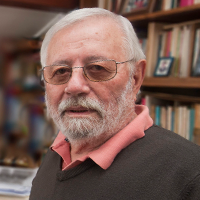Authors Columns of the Day Sport Guest Life All Authors
Terror and terrorist
Let's first acquaint ourselves with the historical period in which the concept of "terror" emerged: "The Reign of Terror or The Terror (September 5, 1793 - July 28, 1794), was a bloody period during the First French Republic, following the French Revolution. It lasted 10 months, during which the Jacobins, who seized power, conducted trials against revolution opponents and instigated a wave of executions in Paris. Leading Jacobins included Robespierre, Mirabeau, Marat, Saint-Just, and Danton. After declaring the Republic, these leading Jacobins ensured the execution of King Louis XVI on January 21, 1793, for 'treason,' to irrevocably prevent a return to monarchy. Additionally, masses considered counter-revolutionary or internal enemies were sent to the guillotine, creating a period dominated by paranoia across the country." (Wikipedia)
Since entering politics, especially after coming to power, Turkish President Recep Tayyip Erdoğan's most frequently used word is likely "terrorist." For Erdoğan, this term is akin to a cure-all. No previous prime minister or president in Turkey has used the words "terror" and "terrorist" so gratuitously and without reason.
Erdoğan uses these two terms almost whenever he pleases. In this context, perhaps his only accurate observation is that the PKK is a terrorist organization. The actions of the PKK since its foundation align with the dictionary definition of terror and terrorism:
"Terrorism is the use of violence and threats by individuals or subnational groups, designed to influence and intimidate a wide audience for political and social objectives." Or: "Terrorism, also known as intimidation, refers to the use of pressure, intimidation, and all forms of violence by civilians, specified target groups, or official, local, and general administrations, aiming to achieve political, religious, and/or economic goals."
Currently, in Turkey, the PKK is the only organization that fits this definition. However, according to Erdoğan, the Good Party (İYİ Parti), Nationalist Movement Party (MHP), and Justice and Development Party (AKP), there are plenty of terrorists in the country, who become terrorists dreaming about Democracy and Progress Party (DEVA Parti) and its previously banned predecessors.
For example, in an exclusive interview on July 14, 2017, with Zeinab Badawi on BBC's HARDtalk program in Istanbul, President Erdoğan claimed that the main opposition party, the Republican People's Party (CHP), was acting in concert with a terrorist organization. However, the Chief Public Prosecutor of the Court of Cassation and the public prosecutors seem not to take such claims seriously, as there has been no legal action taken against the CHP. Yet, the inaction of these authorities benefits Erdoğan, allowing him to continue slandering the CHP with baseless allegations. If the Chief Public Prosecutor and other prosecutors were to initiate legal proceedings, the CHP would undoubtedly be cleared, exposing Erdoğan's claims as libelous, potentially leading to accusations against him.
When discussing state and governmental terror, one cannot overlook bureaucratic oppressive regimes, which exemplify this form of terror. Ignoring all forms of contradictory logic, opposition expressions, and negotiations, and forcefully conducting politics is the epitome of this type of terrorism.
State terror, unlike organizational terrorism which sees its actions as an antidote to anarchy, develops a logic of fear in the service of order and becomes increasingly oppressive to ensure absolute order. It resorts to increasingly irrational methods, leading to totalitarianism.
Our discussion also proves that the practices of the current government are unconstitutional. For instance, the subjugation of the Grand National Assembly of Turkey (legislature) and the judiciary to the executive branch, specifically the Presidential office, or Recep Tayyip Erdoğan, and the neutralization of the Constitutional Court, Council of State, Court of Cassation, and the Court of Accounts, contravene universal fundamental legal principles. Additionally, the detention of Osman Kavala and the Peoples' Democratic Party (HDP) MP Can Atalay, according to the last paragraph of Article 90 of the Constitution, is unconstitutional!

